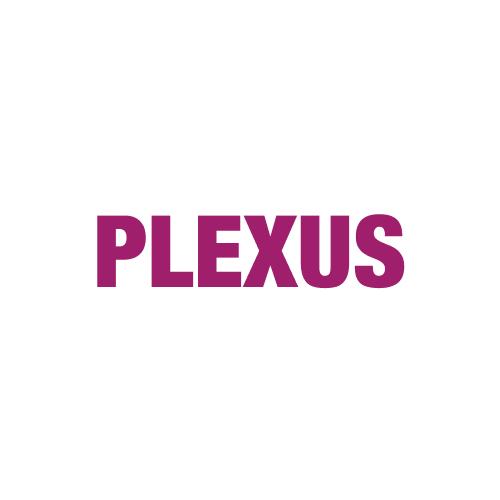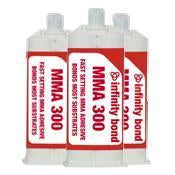October 16, 2024
Plexus is a big name in the adhesives industry, but there are many similar products available on the market that are not as well known. The question is whether these Plexus adhesive alternatives will work just as well or if sticking to the big brand is necessary for the best results.
Testing Plexus MA320 Vs. Infinity Bond MMA 320
To find the answer, we took a closer look at a common Plexus product and its lesser-known alternative. The first product we reviewed was Plexus MA320, a two-part structural adhesive used in various industries. The alternative product was Infinity Bond MMA 320. This product has an almost identical chemistry to the Plexus MA320 adhesive and also has most of the same uses. While it is not as widely known, it does tend to be cheaper than the Plexus MA320 glue.
Following the guidelines laid out by the American Society of Test Methods (ASTM), we performed a D1002 lapshear test at one of our on-site adhesive labs. This test is designed to determine the strength of the adhesives. The strength is measured by how much force it takes for the substrates bonded by these adhesives to experience bond failure when slowly pulled apart. The test uses a universal testing machine, and the force is recorded in both newtons (N) and pounds per square inch (PSI).
Test Setup
Before we could complete the test for Plexus MA320 and Infinity Bond MMA 320, we had to do some setup as defined by the ASTM test standards. Aluminum metal is used as the substrates. Each piece was cleaned with isopropyl alcohol and scuffed before the adhesives were applied to ensure proper surface preparation and adhesion.
When bonding the substrates together, the two pieces of aluminum are overlapped by half an inch and a 10-milliliter layer of adhesive is applied. Glass beads are used to control the amount of adhesive and ensure uniformity between the samples. Finally, the bonded aluminum cures overnight in an oven.
Let’s See the Results
Using the universal testing machine, we performed the same test three times for both Infinity Bond MMA 320 and the Plexus MA320 adhesive. The individual results from each sample as well as the averages for each adhesive are listed below.
| Products | Sample 1: | Sample 2: | Sample 3: | Average: | ||||
| Infinity Bond MMA 320 | 6389 N | 5883 N | 6348 N | 6207 N | ||||
| Plexus MA320 | 4209 N | 5064 N | 5283 N | 4852 N | ||||
| Products | Sample 1: | Sample 2: | Sample 3: | Average: | ||||
| Infinity Bond MMA 320 | 2872 PSI | 2645 PSI | 2854 PSI | 2790 PSI | ||||
| Plexus MA320 | 1892 PSI | 2277 PSI | 2375 PSI | 2181 PSI | ||||
Our test found that the substrates bonded together by Infinity Bond MMA 320 needed more force than the substrates bonded together by Plexus MA320 to experience bond failure. On average, the substrates with Infinity Bond experienced 6207 N and 2790 PSI before experiencing cohesive failure. Upon reviewing the Plexus MA320 adhesive results, we found that the substrates only experienced an average of 4852 N and 2181 PSI before experiencing cohesive or adhesive failure.

Based on these results, our lab technicians concluded that Infinity Bond MMA 320 is stronger than the Plexus MA320 structural adhesive.
In Conclusion
Based on the results found in our testing of Plexus MA320 and Infinity Bond MMA 320, we believe that Infinity Bond MMA 320 is a better choice of adhesive than the Plexus MA320 methyl methacrylate for most applications. Because the Infinity Bond alternative also tends to be the cheaper product, we would recommend it for most (if not all) businesses who are currently using the Plexus adhesive MA320.
If you are a current Plexus user and are ready to make the switch, you can put in your order for Infinity Bond MMA 320. If you want to ensure that the new product will work with your substrates, we can help. Our labs also perform substrate testing for customers to help them determine the best adhesive for their unique application. Learn more about our substrate testing and get started.









